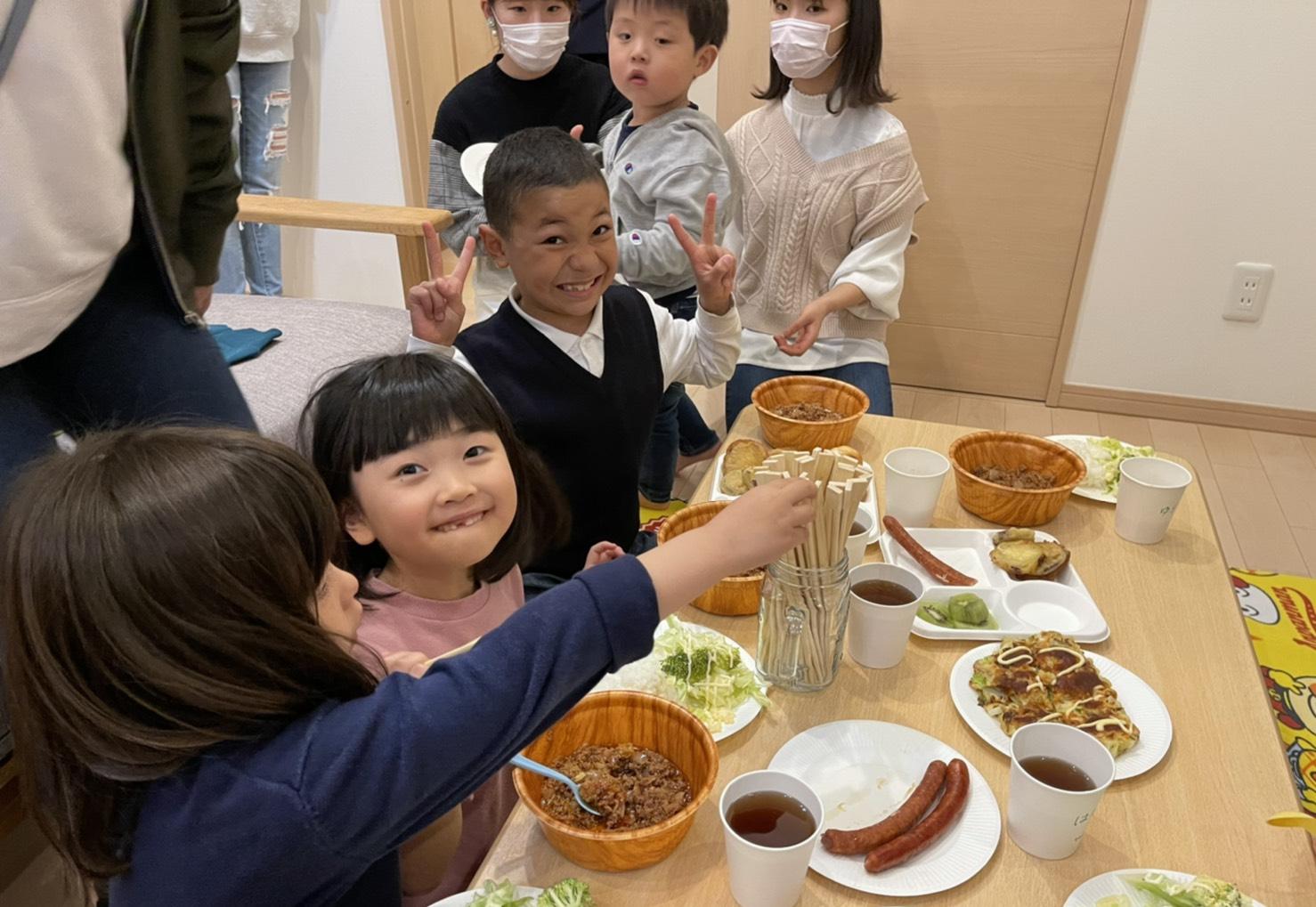◆ Wang Yayuan, a reporter of Japan's New Overseas Chinese Daily
Who said that food is the most heartwarming.
At the end of March 2021, an "International Children's Canteen" was quietly opened in Matsuyama City, Shikoku, Japan. In this special "cafeteria", foreign students studying in Matsuyama personally take charge of the spoon and provide children who have to eat alone with their own exotic cuisine.
"Looks good!" "What a fragrance!" "Delicious!" In a house in the center of Matsuyama, children gather around dinner that has just come out of the pot. Even through the mask, you can feel their excitement. The dinner menu is "leek pancakes" and "yakitori chicken steak", which are made by international students from Korea and Japanese volunteers.

It is understood that this exchange activity of the "International Children's Canteen" in Matsuyama City was initiated by Yamase Maori, the head of the "Matsuyama Sakagami Japanese Language School". A native of Ehime Prefecture, Yamase Mari was active in the Japanese metropolitan area, providing Japanese language training and life support to foreign nationals living there. In 2020, Yamase returned to his hometown of Ehime Prefecture with the idea of "building a foreigner's home for a local city in Japan." When Yamase Noticed, due to the busy work of his parents, there are some local families whose children have to eat dinner alone (lunch is usually provided by the school). At the same time, Yamase Thought of foreign students who lived alone in Ehime Prefecture. Affected by the epidemic, due to the needs of epidemic prevention, most schools have been forced to terminate or reduce extracurricular exchange activities, and even the way of teaching has been changed from offline to online. International students are neither able to return to their home countries nor engage in normal social activities, which will adversely affect their mental health in the long run.
Why not open a "children's canteen"? Bringing together children who eat alone and lonely foreign students so that they can feel the warmth of home is not the best of both worlds. Decided, do it. The enthusiasm of Yamase Mari infected others, and a local real estate company provided a free model room as a venue for the event. Therefore, under the condition of epidemic prevention measures such as hand disinfection, wearing masks, and ensuring ventilation, the "International Children's Canteen" was officially "opened". The "canteen" is "open" once a week, with about 50 people at a time. At present, students from 7 countries, including South Korea, India and Vietnam, have joined us.
When he learned that many students had lost the opportunity to work due to the epidemic, Yamase Mari also applied for funds from the Foundation for Supporting Local Development to provide certain subsidies for foreign students participating in the "International Children's Canteen" activities.
Sophia, an international student from India, shared her joy with gratitude. Sophia came to Japan in September 2019 and entered Ehime University in April 2020. However, due to the need to fight against the epidemic, the school's curriculum has been changed to online. "Staying at home day by day, classmates and teachers are on the other end of the network cable, far away from home and relatives, the whole person becomes very depressed." Just when she was upset, she found the message "International Children's Canteen" in the email from the school and tried to sign up. At the event, Sophia met many people who had similar feelings to her, met new friends, and no longer felt lonely.
By the end of 2020, the National Children's Canteen Support Center, an NPO corporation, has approximately 4,960 "children's canteens" throughout Japan. The public official of the center said that solving the practical living difficulties of foreign students stationed in Japan is a new problem raised by the epidemic to the society. The "Children's Canteen" will become a template to attract enthusiastic people from the higher strata of society.
The original intention of the campaign was to build a bridge of communication between the children who dined in the "International Children's Canteen" and the foreign students who were in a foreign country.
The reporter of Japan's New Overseas Chinese Daily learned that about 300 to 500 Chinese students study and exchange in Ehime Prefecture every year. By participating in social welfare activities such as the "International Children's Canteen", it relieves homesickness and enhances the understanding of the local society, and is also a way to enrich the life of studying abroad. ■